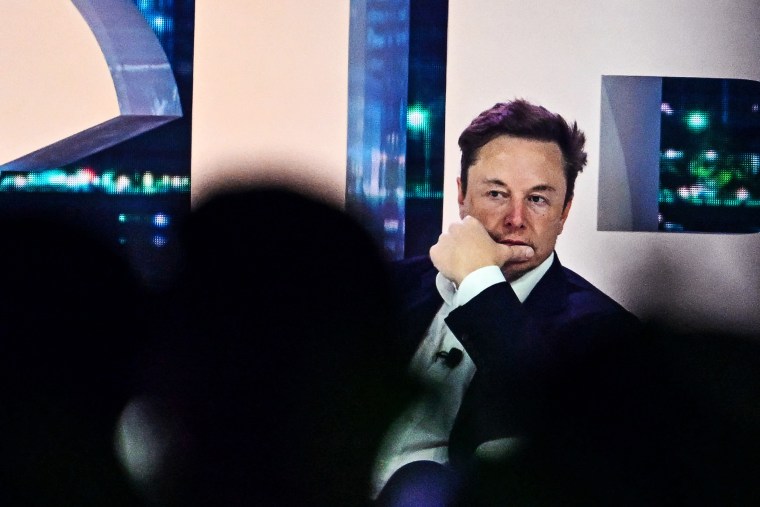Twitter CEO Elon Musk has made a big show of portraying the site before his takeover as a bastion of government censorship. He has coordinated with journalists to publish information known as the “Twitter Files” that suggest that the company was overly compliant in submitting to demands from governments — especially the U.S. government — to take down posts or limit their visibility.
But new data suggests that, at least by some measures, Twitter has become more compliant with government authorities than before he took over. Musk’s promises to shepherd Twitter into a new era of radical free speech are looking phonier by the day.
It’s evident that Musk has failed to fulfill his mandate of ushering in a new era of free speech to the platform.
According to a report from Rest of World, based on data from Harvard University’s Lumen Database, in the six months since Musk’s arrival, Twitter’s compliance with government demands for censorship or surveillance has risen to over 80%, from around 50%. The information comes via Twitter’s largely automated self-reporting to the Lumen database, which monitors government requests for content removal online. According to Lumen, out of 971 government requests received from last Oct. 27 — when Musk took over — to April 26, Twitter completely complied with 808 requests, partially complied with another 154 cases and did not report a response for 9 cases. Notably, Twitter did not report any outright refusals during this period, as pre-Musk Twitter did from time to time.
Some of the most worrisome requests have come from India, where Narendra Modi’s right-wing government has bombarded Twitter with demands to censor unflattering media portrayals of the governing party. Under Musk, Twitter blocked in India posts sharing a BBC documentary that questioned Modi’s role in a 2002 massacre in the Indian state of Gujarat. (Musk at one point said he hadn’t known that Twitter was complying with India’s requests, and cited being busy with Tesla and SpaceX as distractions.) Twitter also recently complied with the Modi government’s requests to locally block the accounts of over a hundred politicians, activists and journalists as it conducted a manhunt for a Sikh nationalist leader. Before Musk took over, Twitter was complying with about 20 percent of India’s requests; it’s unclear where that number is now.
Another authoritarian democracy, Turkey, has been the most prolific submitter of requests to Twitter during Musk’s tenure, and they’ve been overwhelmingly fulfilled. Under President Recep Tayyip Erdogan, the country has passed multiple rounds of laws restricting speech in recent years. Experts say the government views regulating Twitter as a key tool for suppressing dissent ahead of this year’s elections.
The Lumen data alone doesn’t necessarily mean Musk is categorically friendlier to countries looking to crack down on free speech compared to his predecessors. (There are many ways that social media posts can violate laws — like posting false information about elections, for example.) We’d need a more granular investigation to parse exactly what these requests say. And that may become harder to do in the future. According to Rest of World, Twitter stopped reporting data to Lumen as of about two weeks ago — and it's unclear whether that's a deliberate decision or an error.
Still, given where a lot of the requests are coming from, and the many recent high-profile examples of Twitter siding with governments quashing political dissent, it’s evident that Musk has failed to fulfill his mandate of ushering in a new era of free speech to the platform. It’s unclear how much of this should be attributed to incompetence or indifference. Musk has gutted Twitter’s staff globally, and it’s possible that a much leaner operation — especially one lacking institutional memory — is more likely to give the green light to government requests than it would’ve been otherwise. Musk has discussed mass layoffs as a cost-saving measure and a way to reboot Twitter’s institutional identity. Yet understaffing might explain part of why the company has been pretty cozy with governments and undermined that reboot mission.
It’s also likely that Musk underestimated the complexity of pursuing free speech policies on a social media platform that operates in countries with vastly different political and legal norms surrounding speech. Before his takeover, he said that “by ‘free speech,’ I simply mean that which matches the law” — as if a country’s legal codes perfectly reflect its citizens’ beliefs about free speech. Of course that’s nonsense. Not all laws have popular backing, especially in democracies with authoritarian tendencies. Prior to Musk, Twitter did sometimes refuse to back censorship requests or legally challenge them in places like Turkey and India, displaying some threshold for risk in response to oppressive use of the platform. If Musk thinks what he’s doing right now counts as absolute support for free speech, then he doesn’t really stand for free speech at all.

